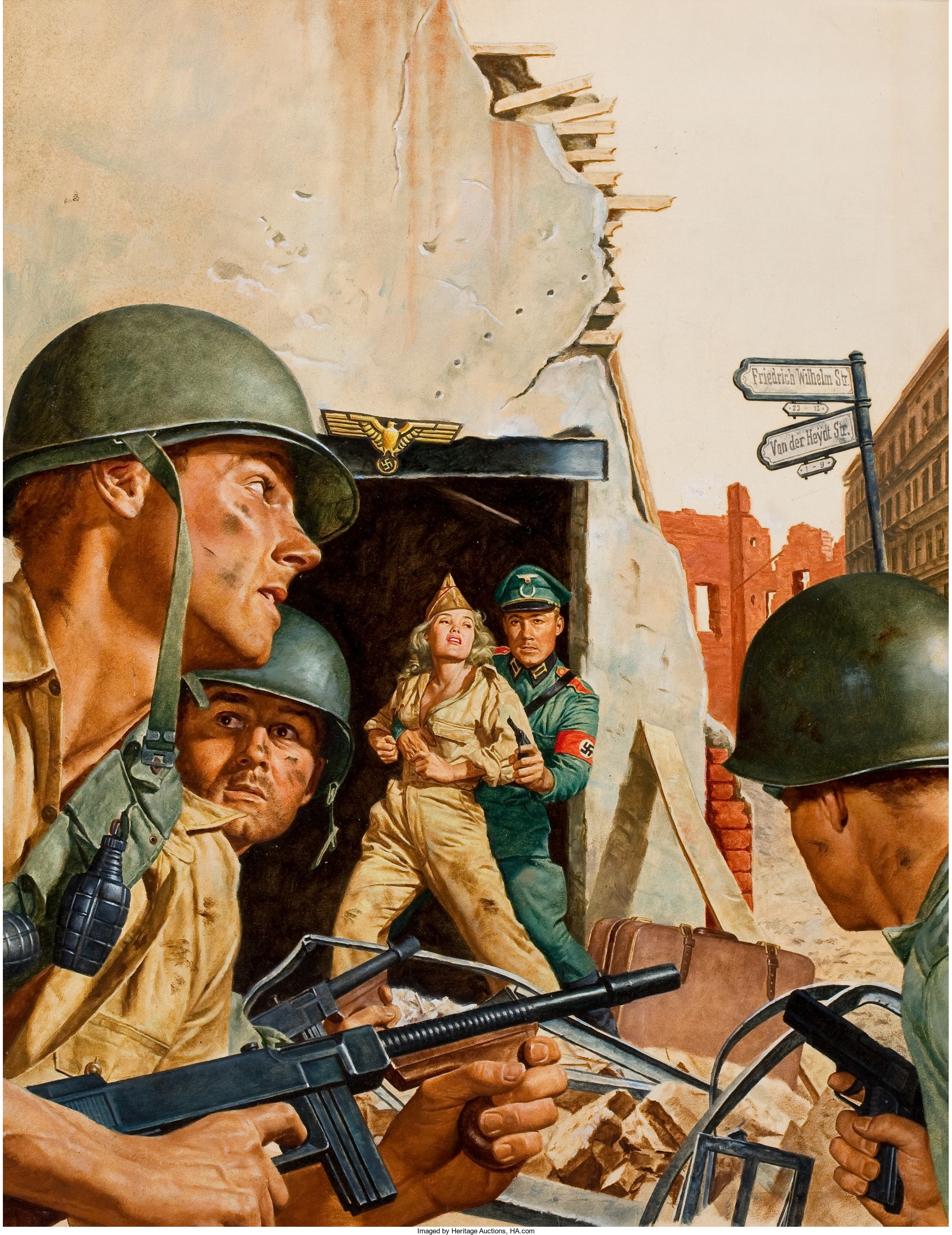
By Jim O’Neal
“When I was captured, I weighed 128 pounds. After two years as an American POW, I weighed 185 pounds. I had gotten so fat you could no longer see my eyes.” – German POW in WW II
And so it was for many World War II Germans who were lucky enough to be shipped from Europe to the United States. Their living conditions as prisoners were far better than as civilians in cold-water flats in Germany.
The prisoners were provided with art supplies, musical instruments, woodworking tools and writing materials. Plus, they were allowed to correspond with their families in The Fatherland.
Ah, but it was the food that made it so unique.
All prisoners were provided with the same rations as American soldiers, as required by Geneva Convention rules. General Officers received wine with their meals and everyone got special meals at Thanksgiving and Christmas.
At first, some prisoners burned their leftovers for fear that their rations might be reduced. “No need, eat all you want. There seems to be an unlimited supply. It is like a miracle!”
And then, of course, there were the cigarettes.
Everyone received two packs each day and some even got meat. Since both were being rationed to American citizens, it quickly became quite easy to bribe guards for all sorts of extra things … use your imagination.
One small irony was that some prisoners actually formally complained to the International Red Cross about the lousy American white bread and coffee. Why not?
A trickier issue was the beer. Prisoners only received a single beer coupon daily, hardly enough to get a mild buzz. Some started pooling their coupons so they could get enough for a full six-pack. (Voila! Problem solved.)
Entertainment was never an issue.
Frequent theatrical or musical performances were allowed that included guards and the Red Cross by the hundreds … at a minimum. Movies were shown three to four times a week, and if a camp didn’t have a projector, the prisoners just pooled their money and bought one.
Money was no problem since they could work on local farms and factories … just not anywhere military things were involved. There was a big labor shortage everywhere since the United States had sent millions overseas to fight in the war. So they were able to earn almost as much as a regular soldier, and their rent and food were free!
All of this started because of a housing shortage in Great Britain and they asked for help in housing captured prisoners. The Liberty ships carrying arms to Europe were returning empty, so it was easy to fill them with the surplus prisoners on the way back.
All told, 425,000 German prisoners were shipped to the United States and sent to 700-plus camps spread over 46 states.
Many of the German POWs were dismayed by the end of the war. They did not relish the prospect of being sent back to a war-torn, bombed-out homeland. Some were able to delay the return by two years.
Not all actually left. Would you?
 Intelligent Collector blogger JIM O’NEAL is an avid collector and history buff. He is President and CEO of Frito-Lay International [retired] and earlier served as Chairman and CEO of PepsiCo Restaurants International [KFC Pizza Hut and Taco Bell].
Intelligent Collector blogger JIM O’NEAL is an avid collector and history buff. He is President and CEO of Frito-Lay International [retired] and earlier served as Chairman and CEO of PepsiCo Restaurants International [KFC Pizza Hut and Taco Bell].
